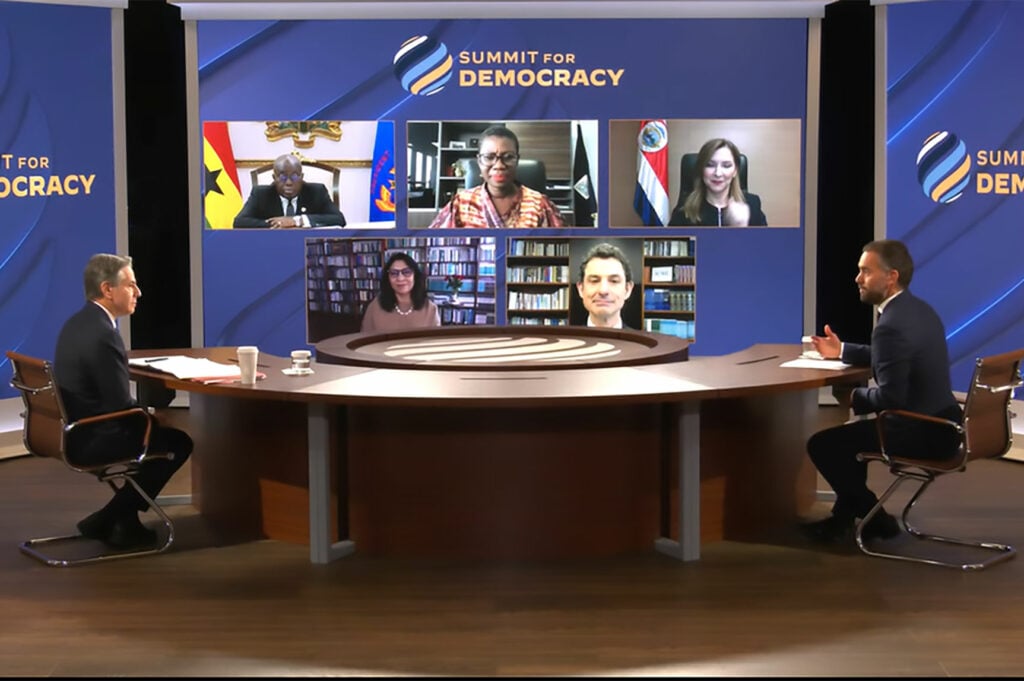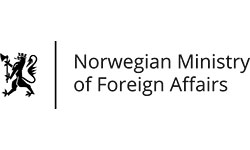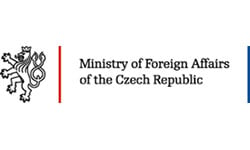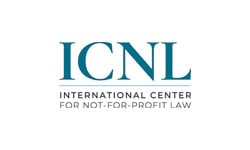Civic Space and the Summit for Democracy
The Civic Space Cohort’s Calls to Action
The United States, along with the governments of Costa Rica, the Netherlands, the Republic of Korea, and the Republic of Zambia, hosted the second Summit for Democracy from March 29-30, 2023. Following up on the 2021 Summit, this year’s summit aims to bring democracies together to revitalize and improve open, rights-respecting societies from within and to show that they can address the most pressing crises.
Norway, the Czech Republic, and ICNL lead the Summit’s Civic Space Cohort. Together, we developed six workstreams, each of which has calls to action endorsed by governments.
Learn more about our cohort’s workstreams and calls to action below.

ICNL President Doug Rutzen, and panelists, speaking with U.S. Secretary of State Antony Blinken and CBS Correspondent, Enrique Acevedo during the 2021 Summit for Democracy. (Photo: ICNL)
LEARN MORE ABOUT THE SUMMIT (VIA U.S. STATE DEPARTMENT)Using the Anniversary of the UN Declaration on Human Rights Defenders to Strengthen Support to and Recognition of Human Rights Defenders and Civil Society
2023 marks 25 years since the adoption, by consensus, of the UN Declaration on Human Rights Defenders in the General Assembly. It is also the 75-year anniversary of the Universal Declaration of Human Rights. We propose to use these anniversaries to strengthen the awareness of human rights defenders’ contributions to civil society.
LEARN MORE ABOUT SUPPORT TO AND RECOGNITION OF HUMAN RIGHTS DEFENDERS AND CIVIL SOCIETY
Civil society activists, journalists, artists, lawyers, academics, and others who promote and protect human rights for all, play important roles in safeguarding democracy, rule of law, and sustainable development. Through their activities, they may contribute across multiple fields, such as documenting and ensuring accountability for human rights violations and abuses, redress to victims and survivors, protection of the environment, stronger and more inclusive institutions, and better public policies and laws.
Notwithstanding, human rights defenders are often exposed to stigmatization and smearing owing to their work, which are contributing and sometimes enabling factors for other violations and abuses, including threats, harassment, surveillance, and attacks, online and offline. Women human rights defenders are even more at risk and are disproportionately impacted by threats and attacks, which are often more gendered and sexualized than threats against their male counterparts, due to how they challenge social gender norms and stereotypes.
2023 marks 25 years since the adoption, by consensus, of the UN Declaration on Human Rights Defenders in the General Assembly. It is also the 75-year anniversary of the Universal Declaration of Human Rights. The Special Rapporteur on the situation of Human Rights Defenders will present the achievements of human rights defenders in her forthcoming report[1] to the Human Rights Council. The report will be presented at the 52nd session in March 2023.
We propose to use these anniversaries to strengthen the awareness of human rights defenders’ contributions to the realization of human rights, rule of law, democracy, peace, and inclusive and sustainable development. This is important to counter negative stereotypes and narratives.
Calls to Action
- Promote policies and public statements, for example, joint statements, demonstrating the positive and legitimate role of human rights defenders in promoting human rights, democracy, the rule of law, peace, and sustainable development on the occasion of the 25-year anniversary of the adoption of the Declaration on Human Rights Defenders.
- Publicly support the campaign launched by the UN High Commissioner for Human Rights to release all who are arbitrarily detained for exercising their human rights.
- Encourage and support national-level monitoring efforts by, inter alia, A-status national human rights institutions in co-operation with human rights defenders, to further the implementation of the UN Declaration on Human Rights Defenders and its underlying rights and to enable official national statistics on the situation of human rights defenders.
Country lead: Norway
Supported by: Armenia, Canada, the Czech Republic, Denmark, Estonia, Germany, Kosovo, Latvia, Malta, the Netherlands, Slovakia, Spain, Sweden, the United Kingdom, the United States
DOWNLOAD THE WORKSTREAM CONCEPT NOTESupport to Civil Society in Exile
Civil society activists, including human rights defenders and independent journalists, remain at risk for their activities in too many countries. The number of reported attacks against them is increasing. Those representing marginalized groups are often targeted and these threats force many into exile.
Learn more about support to civil society in exile
Civil society activists, including human rights defenders and independent journalists, remain at risk for their activities in too many countries. The number of reported attacks against them is increasing, including through smear campaigns, violence, harassment both online and offline, arbitrary detentions, torture, enforced disappearances, and even extrajudicial killings. Those representing marginalized groups are often targeted. These threats force many HRDs in different parts of the world to leave their home countries and force them into exile.[1]
While in exile, civil society organizations, activists, and HRDs are forced to adapt to the new circumstances. On the one hand, the situation provides them with an opportunity to continue their work. It may even allow them to acquire new skills and experiences, which would be highly valuable if they are ever able to return to their home countries. On the other hand, being in exile generates a wide variety of challenges that not only restrain the ability of civic actors to work effectively but also negatively affect their everyday life, including their personal security.
Examples of areas in which civil society in exile faces significant challenges:
- Legal entry into the country of exile (visa facilitation, etc.)
- Regularisation of the immigration status (residence permits, work permits, etc.)
- Access to services provided by the government (health insurance, mental health and psychological support services, financial benefits, etc.)
- Ability to work effectively in the country of exile (registration of new civil society organizations, banking, etc.).
- Ability to work effectively in the country of origin; for example:
- Reaching internal audiences in the country of origin in light of censorship, resulting in unstable dependence on tech solutions.
- Refreshing civil society contact networks and sources in their country of origin in a way that is safe for all parties.
- Financial support from donors
- Personal security – including their families (physical security, online security, etc.)
- Misuse by the government of the country of origin of legitimate tools (exchange of banking information, international legal cooperation, Interpol Red Notices, etc.)
[1] The cohort recognizes that providing support to civil society organizations, activists, and HRDs who continue their work in the country of origin remains crucial.
Calls to Action
- To share best practices on allowing civil society activists under threat due to their human rights work to timely and safely enter and continue their work in a country of exile.
- To work to protect civil society activists from threats imposed on them while in exile by the government of the country of origin.
- To support initiatives to provide legal, administrative (incl. banking) and psychosocial help enabling civil society activists in exile to navigate the new environment so they can effectively continue engaging the country of origin.
Country lead: Czech Republic, in coordination with the International Center for Not-for-profit Law (ICNL)
Supported by: Canada, Denmark, Estonia, Germany, Kosovo, Malta, Norway, Slovakia, Spain, Sweden, the United Kingdom, the United States
DOWNLOAD THE WORKSTREAM CONCEPT NOTEOECD DAC Recommendation on Enabling Civil Society in Development Co-operation and Humanitarian Assistance
Civil society is key in protecting and promoting human rights and democratization. Civil society organizations also provide services in development and humanitarian situations and contribute to policy development through dialogue and advocacy. While they are appreciated and add value to the democracy itself these civil society actors also face a wide range of challenges.
LEARN MORE ABOUT THE OECD DAC RECOMMENDATION
On the 6 of July 2021, after an extensive consultation process, the OECD DAC adopted the Recommendation on Enabling Civil Society in Development Co-operation and Humanitarian Assistance. The Recommendation provides the first international framework to guide and incentivize development cooperation and humanitarian assistance providers in advancing their policies and practices to support civic space and civil society actors at home as well as in partner countries or territories. Adherents to the DAC Recommendation are committed to its three pillars:
- Respecting, protecting, and promoting civic space;
- Supporting and engaging with civil society;
- Incentivizing CSO effectiveness, transparency, and accountability.
Calls to Action
- Support and contribute to the dissemination, adherence to and implementation of the Recommendation on Enabling Civil Society in Development Co-operation and Humanitarian Assistance.
- Share experiences from implementing the Recommendation on Enabling Civil Society in Development Co-operation and Humanitarian Assistance.
Country lead: Norway
Supported by: Canada, the Czech Republic, Denmark, Estonia, Kosovo, Latvia, Malta, the Netherlands, Slovakia, Spain, Sweden, the United Kingdom, the United States
DOWNLOAD THE WORKSTREAM CONCEPT NOTEParticipation in Decision-Making Processes
The participation of civil society in policy and decision-making processes is an indicator of a vibrant and inclusive democracy and contributes to the quality and effectiveness of laws and policies while forging a positive relationship between people and their governments. Effective participation in these processes requires and builds upon access to information, freedom of expression, and freedom to associate with others and to hold peaceful assemblies.
LEARN MORE ABOUT CIVIL SOCIETY AND PUBLIC PARTICIPATION IN DECISION MAKING
CSOs and national human rights institutions contribute to promoting good governance, transparency, and accountability of public authorities in different ways and are increasingly active in promoting democratic participation at national and local levels. Safe, non-discriminatory, inclusive, and transparent rules, channels, and processes for participation and access to information allow civil society actors to contribute meaningfully and effectively to law- and policymaking.
CSOs are concerned about their access to and participation in decision-making processes. Concerns refer to a lack of adequate information about participation and consultation processes, a lack of trust between civil society and public authorities, a lack of feedback on what happened with the input provided, and different obstacles, including discriminatory ones, to accessing and participating in decision-making processes. Fast-track and emergency legislative procedures during the pandemic exacerbated existing issues.
Calls to Action
- The public, including civil society and national human rights institutions, where appropriate, should have access to draft legislation and be provided with a meaningful opportunity to provide input.
- The public access to law-making processes, where appropriate, should build on procedures that provide for sufficient timeframes, procedural clarity, and sufficient information in order to make public participation meaningful and efficient.
- Also, in situations of emergency, where appropriate, the public should be provided with an opportunity to provide input, and states should provide for participatory review of the continued necessity and proportionality of emergency measures.
Country lead: Norway
Supported by: Armenia, Canada, the Czech Republic, Estonia, Kosovo, Malta, Slovakia, Spain, Sweden, the United Kingdom, the United States
DOWNLOAD THE WORKSTREAM CONCEPT NOTEAdvancing International Support for Nonviolent Collective Action
Nonviolent collective action is a form of civic participation important for democracies to develop, deliver, and remain resilient through downturns and authoritarian encroachment. As nonviolent collective action occurs within and across borders, questions of how international solidarity occurs are increasingly important to address.
LEARN MORE ABOUT ADVANCING INTERNATIONAL SUPPORT FOR NONVIOLENT COLLECTIVE ACTION
A nonviolent social movement is defined as a widespread, voluntary, civilian-led, collective effort to bring about consequential change in a social, economic, or political order using a diverse repertoire of tactics such as protests, boycotts, and sit-ins. Social movement and nonviolent movement are used interchangeably. The term “movement” is used as shorthand for both. Movements may undertake one or more campaigns. A campaign is defined as a series of observable, continuous, purposive mass tactics or events in pursuit of a political objective. [1]
An established body of research finds that popular nonviolent movements have been one of the most powerful drivers of democracy over the last century. They have also fostered democratic resilience–promoting inclusion and effective governance and countering democratic backsliding. From local grassroots action to national social movements, citizens continue to use nonviolent collective action to demand greater rights, justice, and inclusive development, for example, by calling on governments to enact policies that combat corruption, end child marriage, increase services for indigenous peoples, protect lands from exploitation and defending democratic institutions against illiberal erosion.
In the face of a rising global wave of a clamp down on universal human rights and increased authoritarianism, there is an urgent need to find new and innovative ways to enable and support communities waging nonviolent collective action to advance human rights and democracy. Between 2000 and 2017, nonviolent collective action created space for democratic transitions in 10 autocracies and prompted democratic elections in a further 19 authoritarian regimes, with women and youth leading many of these movements. However, the early 21st century has presented serious deliberate and incidental challenges to nonviolent collective action. Authoritarian actors deliberately seize on increasingly sophisticated tactics to maintain an undemocratic status quo and to erode respect for human rights as well as democratic institutions, laws, and norms. They also coordinate with each other to effectively use disinformation, surveillance, and infiltration to undermine civic actors and weaponize legislation to attack and restrict civic actors, including human rights defenders. Historic currents such as the rise of social media and the prevalence of technology create opportunities for quick action but also pose challenges to sustained and strategic nonviolent collective action.
[1] (Naimark-Rowse, Benjamin. “Dollars and Dissent: Donor Support for Grassroots Organizing and Nonviolent Movements.” Washington: ICNC Press, 2022.)
Calls to Action
- Build a community of learning to unpack the value, effectiveness, and needs of movement actors as well as to share relevant lessons from various government partners, multilateral organizations, and civil society organizations.
- Elaborate a multilateral toolkit within the OECD-DAC Community of Practice that reinforces the OECD DAC Recommendation on Enabling Civil Society in Development Co-operation and Humanitarian Assistance by focusing specifically on engagement with and support for nonviolent social movements.
Country lead: United States, coordinated by USAID together with the International Center for Not-for-profit Law (ICNL) and International Center on Nonviolent Conflict (ICNC)
Supported by: Denmark, Estonia, Kosovo, Malta, Norway, Spain, Sweden, the United Kingdom
DOWNLOAD THE WORKSTREAM CONCEPT NOTECivic Space at the UN
Civil society’s ability to provide expertise, represent marginalized groups, and ensure accountability improves the operation and outcomes of the UN system. Civil society organizations and human rights defenders too often face intimidation and reprisals for engagement and cooperation with the UN, its representatives and mechanisms, while some states seek to introduce new concepts in international norms in order to undermine their efficacy in dealing with issues of civic freedom. The rise in reprisals undermines the UN’s championing of the multistakeholder approach, resulting in the failure to give a platform to traditionally marginalized groups including women and girls.
LEARN MORE ABOUT CIVIL SPACE AT THE UN
In September 2020, under the leadership of the Secretary-General, the United Nations adopted a Guidance Note on Protecting and Promoting Civic Space.[i] The Guidance Note recognizes civic space as a threshold issue to successful implementation of all three pillars of the United Nations and, building on the Secretary-General’s Call to Action for Human Rights, committed to take concrete steps in protecting and promoting civic space at the country, but also the global level.
Numerous reports and guidance documents have been produced aiming to advance inclusion in UN processes and prevent reprisals[ii] against those who participate in them. Eighty countries signed a statement to the Third Committee of the General Assembly in 2022 calling on “all States to take proactive steps to address reprisals” and the UN “to continue its efforts to improve data collection, analysis and documentation of cases, and to use this information to actively improve policies and practices so that the gaps existing in our collective efforts are closed”.[iii] However, more must be done to ensure that the UN is an open, safe, and inclusive environment for civil society to participate in.
[i] United Nations (2020) United Nations Guidance Note: Protection and Promotion of Civic Space
[ii] Human Rights Council (2022) Cooperation with the United Nations, its representatives and mechanisms in the field of human rights – Report of the Secretary-General. A/HRC/51/47:
[iii] United Nations General Assembly. Joint Statement on Reprisals – UNGA 77 Third Committee
Calls to Action
- States commit, including through establishing new, or joining existing groups of likeminded states, to defend and improve language on civil society inclusion across the UN system, ensuring that attempts to exclude civil society actors are unsuccessful.
- States agree to work to improve the ECOSOC NGO Committee processes, making use of existing working methods and the possibility of reform, to ensure a pluralism within accredited NGOs.
- States agree to strive for improvements in the protection of civil society actors who engage in UN processes and the monitoring and reporting of reprisals of individual cases.
Country lead: the United Kingdom
Supported by: Armenia, Canada, the Czech Republic, Denmark, Estonia, Germany, Kosovo, Latvia, Malta, the Netherlands, Norway, Slovakia, Spain, Sweden, the United States
DOWNLOAD THE WORKSTREAM CONCEPT NOTE


Sign up for our newsletters
Sign up